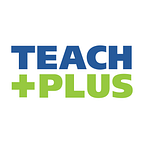All English learners deserve teachers who are fully equipped to help them succeed
By Jose Arriaga, Lorena Ellis, Mary Lopez, Rebeca Vallejo, and Angela Wright
Mateo entered the California public education system as a kindergartner with strong conversational English. However, his academic English, which every student needs in order to access content and demonstrate language proficiency, was not as strong. His previous teachers were not always equipped to address his specific language needs. As a result, his language development plateaued and he stopped making annual progress on state assessments.
By the time Mateo entered 8th grade, he was classified as a long-term English learner (LTEL). He kept questioning why he had to keep taking English Language Development (ELD) classes, which are required of secondary students who are English learners. This demoralized Mateo, as he was an aspiring artist who longed for the opportunity to take an art-related elective. How could a student who spoke conversational English well and had nearly proficient reading and writing skills be denied an elective of his choice? The reality is that if Mateo’s previous teachers had received training on how to effectively implement the English Learner (EL) Roadmap, including the integration of language development, literacy, and content learning, he likely would not have still been classified as an English learner eight years later.
All of us have had students just like Mateo. According to the California Department of Education, in the 2022–2023 academic year, 11.1% of students were classified as LTEL, with 7.1% more at risk of becoming one.
When the California State Board of Education first adopted the EL Roadmap to improve English learner education in 2017, there was a feeling of hope, as decision makers acknowledged that leveraging language assets was the way to build equity into our schools. This comprehensive policy, which is broken into four principles, brought to the forefront the systems that need to be in place to ensure all 1.1 million English learners across California have access to rigorous grade-level content. The roadmap provides tools and examples to support schools, teachers, students, and families as they serve and support our children throughout their multilingual academic journey. The passage of the EL Roadmap was a step in the right direction, yet many educators still find themselves without the requisite resources or training to implement it consistently and successfully.
This gap between the law and the reality in schools underscores the urgent need for AB2074, legislation aimed at providing teachers with specialized training and essential resources. While legislators debate its future, students like Mateo continue to struggle with the current education system’s challenges, which can start early and persist throughout their education, as seen in Rafa’s story.
Rafa’s experience highlights the emotional and academic toll of these challenges. “Miss, why do I have to be here? I feel so stupid,” he said during his ELD class. “Plus, I have a paper due in English and am going to fall behind in history.” Rafa, a high school junior, shares the frustrations of many students preparing for the English Language Proficiency Assessments for California, the annual tests for all English learners. Despite the years enrolled in ELD, Rafa once again did not meet the threshold, preventing him from exiting the ELD program. Rafa’s struggle is not an isolated case but rather a reflection of a broader issue affecting many English learners. In the 2022–2023 school year, only 16.5% of English learners scored an overall 4 on the summative test, barely an improvement from the 16.4% in the 2018–2019 school year, just after the EL Roadmap was passed. This indicates a challenge for many students striving to achieve the necessary proficiency levels. An overall score of 4 is required for English learners to demonstrate proficiency and exit ELD programs, allowing them to join mainstream classes without additional language support. The assessment evaluates language proficiency in four domains: listening, speaking, reading, and writing.
Rafa’s story highlights a systemic issue affecting many high school ELs in California. As an LTEL, he is one of 81,049 high school juniors and seniors who could be enrolled in career pathways but are in ELD intervention courses instead.
If AB2074 becomes law, students like Rafa and Mateo will learn in classrooms filled with relevant and content-rich instructional materials, fostering robust discussions with their classmates. Teachers will be equipped to create a welcoming environment that leverages home languages and values the cultures of all students, as well as assessment and project-based learning support, and coaching opportunities.
The bill is a commitment to our students’ futures. This holistic approach aims to create an inclusive educational system in which Rafa and Mateo have the opportunity to thrive.
Jose Arriaga is a 5th grade Spanish dual language teacher, grade-level teacher leader, and FIRST robotics league instructor in Oakland. Lorena Ellis is a Community Schools Program Specialist in Azusa. Mary Lopez is an independent study and home/hospital teacher in Riverbank and has taught ELD for over 40 years. Rebeca Vallejo is a 9th-12th grade Spanish teacher and world language department chair in Sacramento. Angela Wright is a Title III teacher on special assignment in Azusa. They are 2023–2024 Teach Plus California Policy Fellows.
